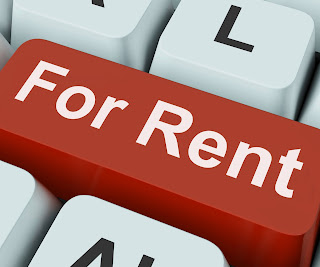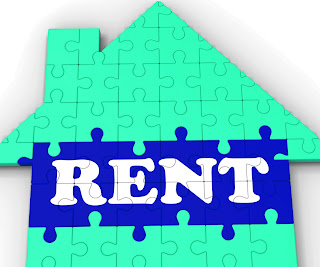Here's What You Need to Know About Short-Term Rentals
By Diane Tait
 Ever since Airbnb got
started in 2009 it spawned a kind of short-term rental gold rush that continues to this day. Believe it or not, the
industry reported more than 1 million vacation rentals in 2019 alone. For vacationers, staying in someone else’s
home is cheaper and cozier than staying in a hotel. For homeowners, renting out a room or their
home from time to time is a great way to help make ends meet. But before you sign up with a short-term
rental portal, there are a few things you need to know first.
Ever since Airbnb got
started in 2009 it spawned a kind of short-term rental gold rush that continues to this day. Believe it or not, the
industry reported more than 1 million vacation rentals in 2019 alone. For vacationers, staying in someone else’s
home is cheaper and cozier than staying in a hotel. For homeowners, renting out a room or their
home from time to time is a great way to help make ends meet. But before you sign up with a short-term
rental portal, there are a few things you need to know first.
 Tax Ramifications – The good news is that
provided you live in your home for at least 15-days per year and you rent your
property or a portion of it for less than 14-days per year, you aren’t required
to claim the rental revenue as income.
The bad news is if this is the case you won’t be able to deduct any
property expenses or take any depreciation deductions. If you rent the property for more than
14-days per year, you are required by the IRS to list your rental income and
expenses on Schedule E. You will then
pay taxes on any profits derived after expenses. Either way, you need to keep records and
should seek the advice of a CPA who’s well versed in dealing with short-term
rental properties to learn what can and can’t be deducted.
Tax Ramifications – The good news is that
provided you live in your home for at least 15-days per year and you rent your
property or a portion of it for less than 14-days per year, you aren’t required
to claim the rental revenue as income.
The bad news is if this is the case you won’t be able to deduct any
property expenses or take any depreciation deductions. If you rent the property for more than
14-days per year, you are required by the IRS to list your rental income and
expenses on Schedule E. You will then
pay taxes on any profits derived after expenses. Either way, you need to keep records and
should seek the advice of a CPA who’s well versed in dealing with short-term
rental properties to learn what can and can’t be deducted.
 Ever since Airbnb got
started in 2009 it spawned a kind of short-term rental gold rush that continues to this day. Believe it or not, the
industry reported more than 1 million vacation rentals in 2019 alone. For vacationers, staying in someone else’s
home is cheaper and cozier than staying in a hotel. For homeowners, renting out a room or their
home from time to time is a great way to help make ends meet. But before you sign up with a short-term
rental portal, there are a few things you need to know first.
Ever since Airbnb got
started in 2009 it spawned a kind of short-term rental gold rush that continues to this day. Believe it or not, the
industry reported more than 1 million vacation rentals in 2019 alone. For vacationers, staying in someone else’s
home is cheaper and cozier than staying in a hotel. For homeowners, renting out a room or their
home from time to time is a great way to help make ends meet. But before you sign up with a short-term
rental portal, there are a few things you need to know first.
Before you open your doors to guests, you need to talk to your insurance agent. That’s because your current homeowner’s insurance may or may not cover your property for short-term rentals, particularly if you plan on availing yourself of the service on a regular basis. Unless you plan on only renting out a room or your home once in a blue moon, such as when the Florida-Georgia game comes to town every, you’ll most likely need to augment your coverage. Either way, you’ll need to contact your insurance agent to find out what your current insurer’s policies are regarding short-term rentals. If you don’t and your “guests” get injured on your property or trash your place, not only will your insurer deny your claim, they may cancel your policy on the spot. Sometimes all you’ll be required to do is add a rider onto your existing policy to adjust your property and liability coverage to meet your insurance company’s requirements.
Don’t
popular vacation rental portals offer additional insurance coverage to members?
While it’s true that many
portals offer additional coverage to members, there’s still a chance that they
could deny your claim. That means you
don’t want to depend exclusively on a third party to cover you should anything
happen to your property or a tenant. You
always want to make sure that your primary insurance will kick in should any
short-term rental agency deny a claim.
The alternative is to put your assets at risk.
What kind
of risk does a short-term rental put on a homeowner?
Renting a room or
your home on a short-term basis isn’t without a few risks. The primary risks to your property are fire,
theft and incidental damage. Since most
short-term rentals give tenants 24/7 access to their property, there’s always
the chance that a guest could abscond with or damage/destroy property contained
in your home. Whether the damage was
intentional or was the result of an oversight, such as when a tenant
inadvertently leaves the stove on which then proceeds to cause smoke damage, it
can not only prove costly to remediate, it can cause you to lose income until
the damage is repaired. The other risks
associated with short-term rentals have to do with liability issues that could
come to haunt you, such as a slip and fall incident or an unfortunate encounter
with your dog. If you’re even thinking
about renting all or part of your home to strangers on a regular basis, you
need to talk to an insurance agent who specializes in short-term rental coverage.
What’s
the difference between short-term and long-term rental insurance?
If you’ve ever rented
your home to a long-term tenant, you are no doubt familiar with the need to acquire
landlord insurance. However, a landlord
policy is only applicable for long term rentals. A long-term tenant can be thoroughly screened
for such things as employment, criminal record and credit worthiness. They can also provide you with references
that you can check out, such as their previous rental history. With a short-term rental agency, you have to
take the word of a third party that any guests sent your way are
trustworthy. With a long-term tenant you
can ask for a security deposit, while short-term rentals provide you with
none. Even insurance agencies look at
short-term rentals as being a riskier proposition than a long-term rental situation
and so should you. After all, it’s your
home that’s going to be advertised to the traveling public.
What
other issues should homeowners investigate before they turn their home into a
vacation rental?
 Tax Ramifications – The good news is that
provided you live in your home for at least 15-days per year and you rent your
property or a portion of it for less than 14-days per year, you aren’t required
to claim the rental revenue as income.
The bad news is if this is the case you won’t be able to deduct any
property expenses or take any depreciation deductions. If you rent the property for more than
14-days per year, you are required by the IRS to list your rental income and
expenses on Schedule E. You will then
pay taxes on any profits derived after expenses. Either way, you need to keep records and
should seek the advice of a CPA who’s well versed in dealing with short-term
rental properties to learn what can and can’t be deducted.
Tax Ramifications – The good news is that
provided you live in your home for at least 15-days per year and you rent your
property or a portion of it for less than 14-days per year, you aren’t required
to claim the rental revenue as income.
The bad news is if this is the case you won’t be able to deduct any
property expenses or take any depreciation deductions. If you rent the property for more than
14-days per year, you are required by the IRS to list your rental income and
expenses on Schedule E. You will then
pay taxes on any profits derived after expenses. Either way, you need to keep records and
should seek the advice of a CPA who’s well versed in dealing with short-term
rental properties to learn what can and can’t be deducted.
So many
agencies. So little time. - While Airbnb is still the most popular
vacation rental portal, there are a number of other contenders in the
short-term rental agency arena. Choosing
the one that best fits your need is no easy matter. Before you point and click your way into a
rental deal from hell, you need to do your homework by vetting any agency online
that you’re considering. You should also
discuss any potential rental agencies with your insurance insurance agent,
since he or she will have far more experience in dealing with the short-term
rental business than you do. Here is anarticle that lists some of the bigger players in the vacation rental industry.
Local regulations
concerning short-term rental properties –
Before you sign up with any vacation rental agency, you need to find out what
the restrictions and regulations are for your area. Everything from zoning and inspections, to
licensing and condo/homeowner restrictions could ruin your day before you ever
open your home to guests. Some
municipalities put restrictions on how often and how many rooms a homeowner can
rent to guests on a short-term basis per year.
Before you point and click your way into a lot of bureaucratic red tape,
you need to find out what the rules are in your neighborhood or condo.
Diane Tait
owns and operates A&B Insurance. To find out more about how you can save
money on insurance, go to her site or fill out the form at right.



The hardest part of starting any new business is the learning curve. It always makes sense to consult with someone who has been there and done that before you open your doors.
ReplyDelete